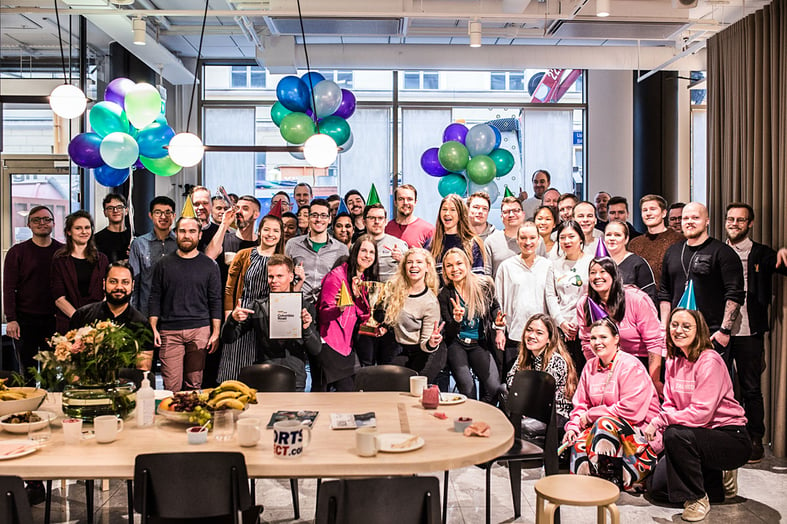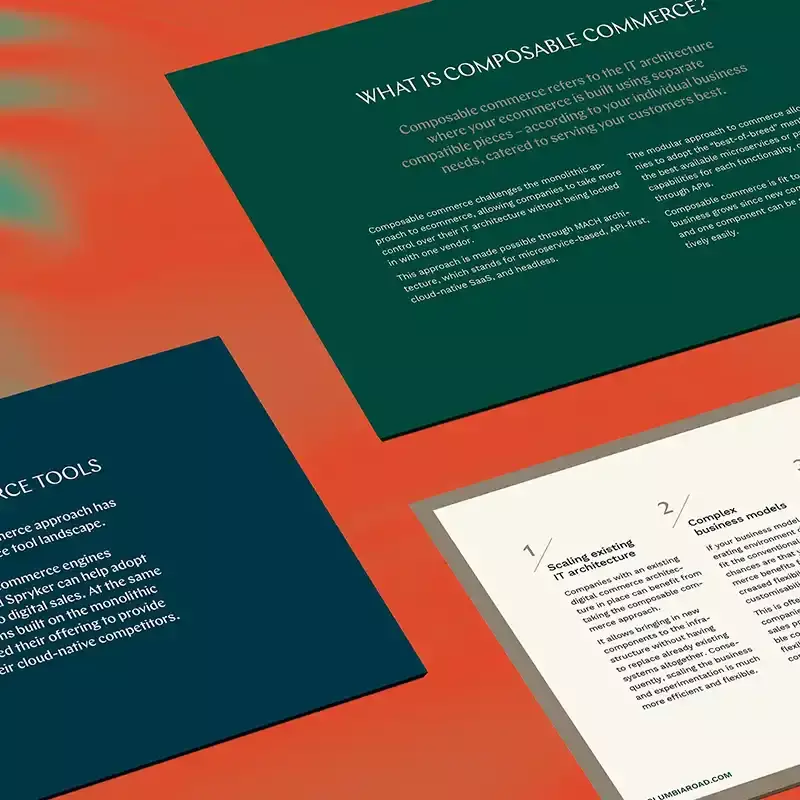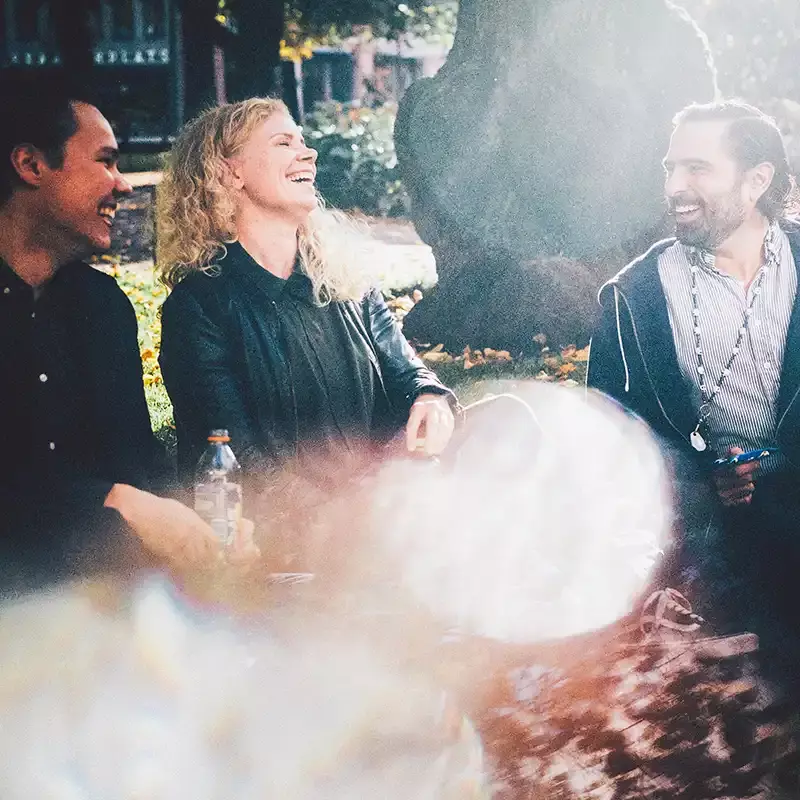The Data Handbook
How to use data to improve your customer journey and get better business outcomes in digital sales. Interviews, use cases, and deep-dives.
Get the book
The evolution of organisations has gone from conformist to achievement-driven to self-organising, which has been the go-to model for many modern technology companies. In 2016, when setting up Columbia Road, self-organising was how we wanted to build our community as well. Now, after 6 years in business, we see our culture and way of organising as community-led rather than self-led.
A community-driven or community-led (in Finnish yhteisöohjautuva) organisation is an evolutionary step – the 2.0 version – of a self-organising culture. It’s about removing all hierarchy and replacing it with community-led structures. In no way is community-driven organisation anarchy or chaos, but rather a system where responsibility is changing based on ownership and experience.
The organisation changes constantly and experimentation is a habit. In such a culture, mistakes are seen as learning experiences. They help us develop and are also places where we can learn about acceptance - of ourselves and others. Don’t aim for a perfect solution or stick to just one possible end result: change is constant and adaptation is key.
I see that the building blocks of community-led organisations are as follows:
1. Trust
Since Columbia Road’s beginning, our people have always been at the core of everything we do. One of the biggest building blocks of our company is the trust we put in everyone. The shared trust stems from the fact that we believe all people are inherently good and mean well. Trust is shown in our company from the very first day, but it comes with responsibility.
In a community-led organisation, trust means that you don’t have to ask for approval for decisions that affect your work. We trust people to make the best possible decision, as they know what is best for them to succeed in their own work. But it’s important to keep in mind that by making a decision the person is then responsible for that decision.
A culture of trust is a great factor in our success, as it fosters creativity, and commitment, and helps everyone to aspire to do their best.
2. Transparency
In order for people to make good decisions and to be able to take responsibility, everyone needs to have access to as much information as possible. We have approached this so that unless there is a legal or other cogent reason all information is available to everyone in the company, from financials to salary ranges to strategic documentation.
It is through transparency that we are able to see leadership manifest in client teams, in internal task forces and in individuals rather than through line managers. Transparency also means that everyone has a responsibility to share as much with others as possible: for example, things that could help others professionally, internal information or plans to take a new tool into use. It means that tough questions might be asked and everyone should be open to having discussions, but the final call is always made by the people owning the topic.
3. Structures
From the get-go, our aim has been to build structures that are geared toward building and maintaining trust and transparency as the organisation grows. Structures act as enablers, making sure that people are supported and have visibility, as well as creating alignment within the organisation.
I always want to remind people that structures are not equal to hierarchy. They bring clarity, and transparency, and help everyone to understand where and how decisions are made. When leadership doesn’t equal line management, it’s essential to ensure that leadership is taken on by the team and through shared practices.
Community-led organisations have their own set of rules, ways of working and support structures. These elements, at their best, manifest themselves in high employee motivation, organisational productivity and satisfied clients.
4. Shared goals, shared rewards
Our community of 140 Roadies is a collection of different backgrounds, knowledge and experiences. All of us contribute to our business in equal amounts, which makes it immensely important to make sure that everyone feels and knows they are treated as equal contributors.
As we have shared goals instead of individual ones, we share success equally - regardless of seniority, tenure or contribution. As an example, the annual company bonus model is equal for all employees, as everyone receives an equal payout if the shared goals are met.
5. Support
At the same time, it’s really difficult to have compassion when the stakes are high. For both the organisation and the individual. For me, the ultimate goal is to make sure our community is a place where everyone can and will ask for help when needed. By helping others, everyone is helping themselves as well.
We want to ensure that Roadies are able to trust, and know, that they always have someone to turn to and that they are able to support each other. Knowing who to turn to is key in fostering a safe and supportive environment for all of our Roadies. There are some Roadies that are key in supporting their fellow Roadies, such as General Managers, HR and our HR task force.
We also have checkpoints, our way of getting feedback and planning for personal professional development. Checkpoints aren’t about presenting your accomplishments or negotiating your salary. It’s about how you want to grow and develop within your competence and as an individual, as well as the steps that can help get you there.
Sirkka-Liisa also talks about these themes on her recent visit to the Auntie Talks podcast. Her episode on community-led organisations, company culture and more is now available wherever you listen to your podcasts! You can find the episode for example on Spotify and on Apple Podcasts.
Feeling inspired? Apply now and get a chance to create a real impact with your work! Gear up your career, learn new skills, work along with the best people in the business and get to work on projects you care about.
The Data Handbook
How to use data to improve your customer journey and get better business outcomes in digital sales. Interviews, use cases, and deep-dives.
Get the book




